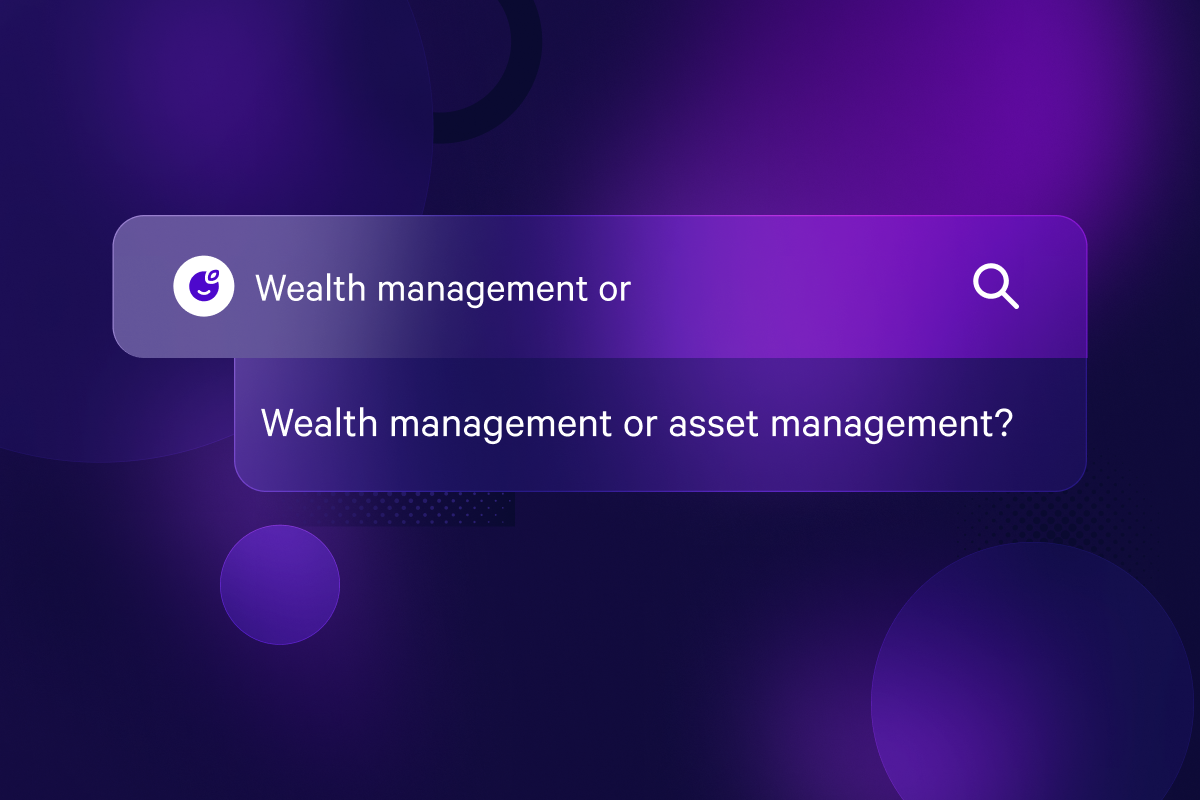Wealth managers help people with their entire fortune
You could compare wealth managers to a personal doctor or General Practitioner. A GP looks at your entire health, from your breathing pattern to your toenails. They’ll ask personal questions and consider a range of treatments. The best ones will conduct preventative check-ups too. Likewise, wealth managers will look at every part of your finances.
Wealth managers provide 360-degree financial services
Wealth managers will consider every angle of your financial well-being. And often, your family’s too. Some of the things wealth managers will consider are your:
- Financial goals
- Risk tolerance
- Lifestyle choices
- Current accounts
- Savings accounts
- Investments
- Pensions
- Real Estate
- Tax considerations
- Succession Planning
- Family finances
- Trusts
… and more.
Wealth managers charge around 1 - 1.5% of the returns
Rather than charging a fixed cost, most wealth managers will simply take a slice of the returns. The fee is usually written as a percentage. Or a one-hundredth of a percentage, called a ‘basis point’.
On average, wealth managers charge around 1 – 1.5% of the value of the portfolio.
As you might imagine, you’d need to have a lot of money to be able to afford a wealth manager. Often, wealth managers will not even consider you, unless you have around £1 million in the bank and across your investments (liquid assets).
Wealth managers generally have well-off retail clients
Wealth managers tend to serve retail investors – clients who are not financial experts themselves. Generally, they will target people with between £1 million and £5 million in liquid assets – known as a ‘High Net Worth Individual’ or HNWI.
Occasionally, they will also cater for people with more than £250,000 in liquid assets, known as ‘affluent investors’.
2.4 million people in the UK employ a wealth manager to help them manage their finances. Around 3.5% of the entire population!
Digital wealth managers or robo-advisors
Traditional wealth management means sitting down with a client, and talking at length about financial goals and risk tolerance. It’s quite expensive and of course, this service is not affordable for most people.
And so, online services like our stocks and shares platform or Self-Invested Personal Pension (SIPP) plan have emerged to fill the gap. These offer a light approach to wealth management at a tiny fraction of the cost.
While these online services are a good interim step for people who would like to manage their wealth, they don’t offer personal service. You’ll still need to research your investments carefully.
Asset managers focus on one area of finance – usually investments
If a wealth manager is like a GP, you could think of asset managers as specialists. Neurologists, surgeons, osteopaths, physiotherapists and more. They tend to focus on one particular area (or asset), and they do it intensively for very serious cases. Most commonly, asset managers will deal with investments for institutional clients.
Asset managers mostly serve institutional clients
Asset managers tend to serve institutional clients. And this means dealing with vast sums of money – these clients can bring hundreds of billions each.
The types of clients asset managers work with include:
- Pension funds
- Mutual funds
- Banks
- Hedge funds
- Insurance companies
… and more
The needs of institutions are different from retail clients
Asset managers aim to grow or preserve the value of investments, for their clients.
Often, the same client will have more than one need. For example, a pension company will bring in fresh money from younger employees which needs to grow. This means investing it in high-risk, long-term assets. At the same time, there will be pension money coming in from people about to retire, which needs to be very accessible and steady in value. They need to manage assets across different markets and with many different needs.
From time to time, a wealth manager will call itself an asset manager, and vice versa. That’s why it’s important to look at what the firm actually does, rather than what name it has.
What’s the right solution for you?
Finding the perfect solution for you depends on your unique situation. Your finances. Your risk tolerance. And your goals.
If you’re not in a position to afford a wealth manager just yet, there are other options available. You could meet with a financial adviser – a professional who has been accredited by the FCA – to help get you on the right track. Or, you could find a financial coach. Financial coaches are generally much less expensive, because they are not accredited by the FCA. Before diving in, always check out their experience and financial credentials!
Alternatively, you could do exactly what you are doing now, and research about finance and wealth management. At Plum, we are on a mission to bring fresh and clear financial content to you. If you feel comfortable doing your own research, you could become your own wealth manager … And you don’t need £1 million in the bank to get started!
Please bear in mind that, as with all investing, your capital is at risk. The value of your investments can go down as well as up.
The information contained in this article is for general guidance only and is not intended to constitute investment advice or any other advice or recommendation.
Download Plum